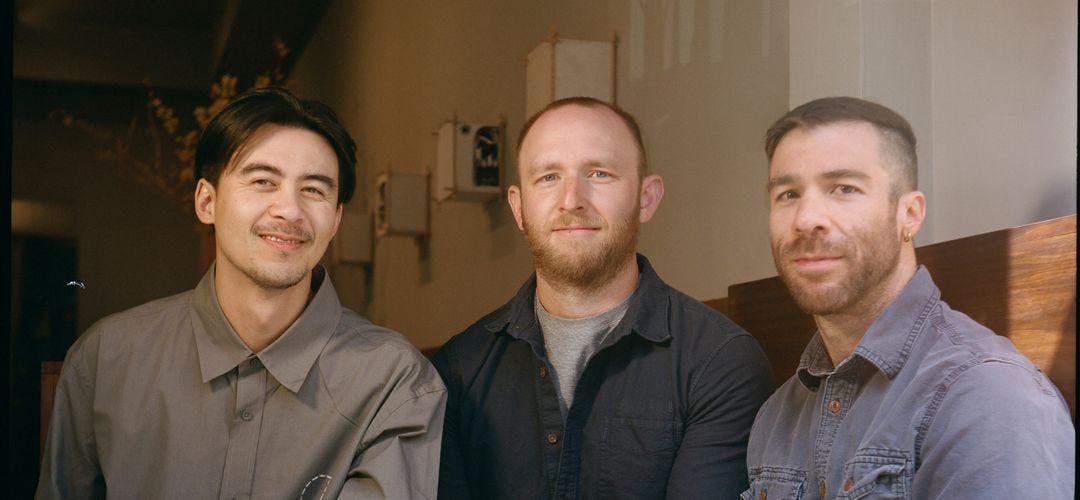Hostie's partnership play
A young tech company celebrates its newest integration.

What’s it like out there for a restaurant tech startup?
The biggest restaurant technology companies in the country are grabbing headlines with stories of growth and acquisitions, moving quickly to add new functionality to products that have become deeply entrenched in restaurant operations. Is there still room for new players?
Randall Hom, co-founder and CEO of Hostie, an AI-powered phone-answering bot for restaurants, thinks so. I was introduced to Hom about a year ago thanks to Hostie’s work with San Francisco hotspot Flour + Water.
Less than a year later, Jasmine (that’s the bot’s name) has answered over 200,000 guest phone calls, helping Hostie secure $4 million in seed funding from a handful of investors. Among them, a few early winners in restaurant tech including a former OpenTable CEO and some ex-Yelp execs. Now, the company is celebrating a new milestone: a Yelp integration that lets callers check wait times and, if the restaurant allows it, add their name to the wait list.
“We get flooded with a ton of calls about wait lists,” Hom told me recently. (“We” is Hostie.) This integration, he says, lets callers can take action.
The ability for a caller to tap Hostie and Yelp for wait list help happens under a specific set of circumstances — most importantly (and obviously), the restaurant has to use both Hostie and Yelp. Hom didn’t share exact customer numbers, but Hostie currently counts the restaurants on its platform in hundreds — far fewer than the 11,000 or so using Yelp’s guest manager to seat diners.
That makes this deal a small success story in a maturing restaurant technology ecosystem.
Yelp works with tons of tech partners across its business. These third parties can tap into the company’s data and (some) features, like wait lists and reservations at restaurants. Yelp vets potential tech partners (like Hostie), who pay for access.
Still, phone-answering bots are getting more air time. OpenTable CEO Debby Soo recently spotlighted two of her company’s voice AI partners in a piece for Fast Company. Yelp is even developing its own AI-powered answering service for restaurants, a presumptive competitor to Hostie.
So… what’s it like out there for a very young restaurant technology company in a competitive space?
Paraphrasing Hom: It’s a grind… but a good grind. And building the right partnerships as early as possible is critical to the company’s future success.
“A large fish isn’t going to want to look at a smaller player… especially if there’s not as many mutual customers,” Hom says of the biggest players in the space. “It’s this chicken-egg problem where we need to show value to their network of restaurants. That buys case to build a partnership. We’ve been constantly reaching out to the heads of partnerships and business development people.”
Investors, of course, want to see a plan for growth and even potential exists.
“It’d be great to get acquired, especially if it’s the right company that acquires us,” Hom says of one potential outcome. “At the same time, you can’t bank on being acquired.”
What happens to Hostie in the future, he says, is in the future. For now, he plans to “turn this into a big company” with the help of a handful of new hires and more (as-yet-unannounced) tech partnerships.
But mostly, Hom’s excited about Hostie’s potential to become a trusted partner to restaurants — and their human staffs. Great in-person restaurant hosts maintain guest relationships for a restaurant, he says. And when that staff member inevitably moves on, a restaurant loses some of those relationships.
“The big question for us,” Hom says, “Is can we be your lifelong host?”



